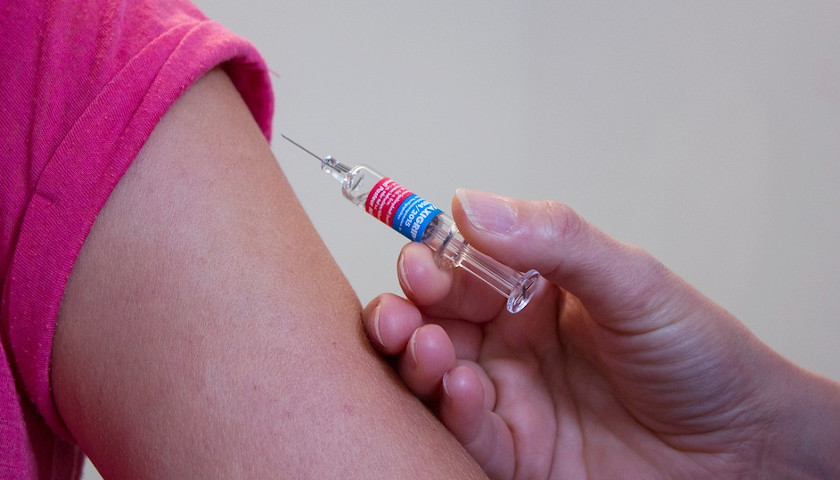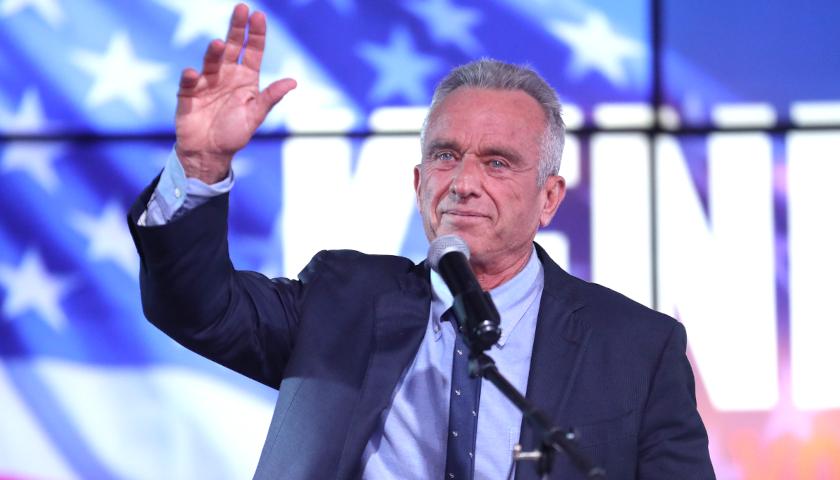by Scott McClallen
After months of waiting, the COVID-19 vaccine is out, but a labyrinth lies ahead to get vaccines from the federal government into the arms of Michiganders.
Many of the vaccines were created and approved in less than a year, but it’s unclear how long it will take to immunize all 10 million Michigan residents.
About 725,850 COVID-19 vaccines have been distributed to Michigan, but only 174,749 doses have been administered.
But it’s not as simple as saying nearly 600,000 COVID-19 vaccines are sitting on shelves in Michigan, because the state COVID-19 Vaccine Dashboard has a category for “vaccines shipped,” but not “vaccines received,” Michigan Health and Hospital Association (MHA) spokesperson John Karasinski told The Center Square in an email.
“There is a lag between when vaccine doses appear in the ‘vaccines shipped’ category and when they are actually received by the hospital or health system,” Karasinski wrote. “Simply taking the difference between the ‘Vaccines Shipped’ and ‘Doses Administered’ is not an accurate way to calculate unused vaccine doses.”
On Wednesday, Whitmer blamed the federal government for the slow rollout, and on Friday, she contended there must be a national strategy to solve the problem.
As of Wednesday, the state said Michigan was nationally ranked 10th for doses distributed (4,814), 29th in doses distributed per 100,000 population, and 40th in the number of first doses administered per 100,000 population (1,249).
Robert Graboyes, a senior research fellow at the Mercatus Center at George Mason University, has been a healthcare economist for 25 years and holds five degrees, including a Ph.D. from Columbia University.
Graboyes said the vaccine rollout is a “heavy-duty problem” but argues the solution isn’t centralized planning.
For example, New York Gov. Andrew Cuomo has threatened $100,000 fines for hospitals that don’t deplete their vaccine allotments. Healthcare providers who vaccinate outside of the state’s deemed order could lose their license and be fined $1 million.
“They’re placing so many different restrictions that it likely has a paralyzing effect on the providers,” Graboyes said.
“My first suggestion is just to get out of the way of the providers who actually are doing this job,” Graboyes said, adding that the real knowledge base is in the local health departments.
There are preferences to who gets the vaccine first, such as healthcare workers and the elderly, Graboyes said, but there’s a real danger to overspecifying vaccine priorities and “using draconian measures to try to enforce” the priorities.
Graboyes suggested instead asking for help from logistics giants such as Amazon.
When asked about the effectiveness of national strategies to tackle the COVID-19 vaccine rollout, Graboyes pointed to the European Union (EU).
“Germany, France, Italy and Spain – the EU’s largest countries – have together inoculated less than half the number of people who’ve received a jab in Israel,” Bloomberg News reported, adding that the four nations have almost 30 times Israel’s population.
Israel has vaccinated roughly 1.5 million people, CNBC reports.
Meanwhile, the United States has given roughly 6 million people their first vaccination.
Karasinski said vaccine administration at hospitals was slowed by staffing shortages, holiday schedules, and vague vaccine arrival dates.
“It is hard to plan an employee vaccine clinic when you don’t know the exact date the vaccine will arrive, which did result in some planned vaccine clinics being canceled because the vaccine shipment had not yet arrived,” Karasinski wrote in an email.
Karasinski said they’ll be given a range for when the vaccine will arrive, and shipments frequently arrive “on the back end of that range.”
However, Karasinski said vaccinations are happening faster now, with about 33% of vaccines distributed being injected, a 13% increase from prior weeks. More than 24,000 COVID-19 vaccinations occurred on Wednesday, state health officials said.
– – –
Scott McClallen is a staff writer covering Michigan and Minnesota for The Center Square. A graduate of Hillsdale College, his work has appeared on Forbes.com and FEE.org. Previously, he worked as a financial analyst at Pepsi.





